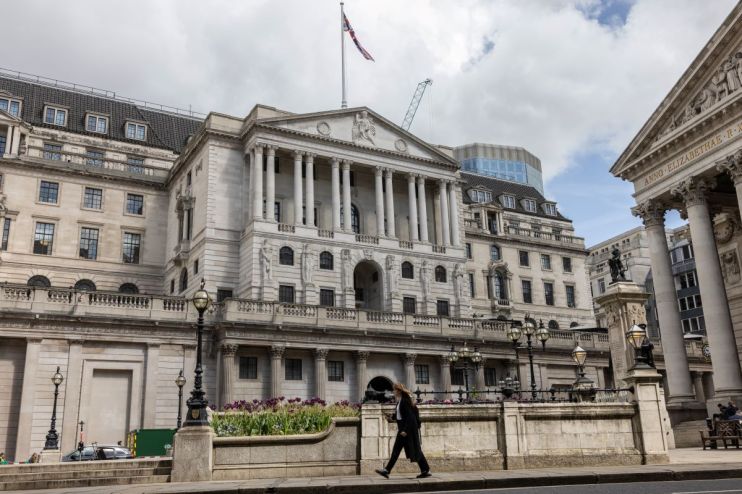FTSE 100 close: Markets in the red as Bank of England hikes interest rates to 5.25 per cent

London’s FTSE 100 stayed in the red through most of Thursday on a day which saw the Bank of England confirm a 14th consecutive interest rate hike of 25 basis points.
The capital’s premier index was down 1.27 per cent by midday and closed at -0.51 per cent.
The domestically-focused mid-cap FTSE 250 index, which is more aligned with the health of the UK economy, followed a similar early morning trajectory before levelling out flat.
The BoE monetary policy committee (MPC)’s rate rise, which took UK borrowing costs to 5.25 per cent, was in line with consensus forecasts – despite earlier concerns of a potential 50 basis point hike.
That more aggressive hike would have spelt huge trouble for retailers and house builders, placing further pressure on household finances.
Ahead of the announcement, stock indexes had faced added pressure as Fitch – one of the world’s most influential credit rating agencies – on Wednesday downgraded its assessment of the USA’s debt position from AAA to AA+.
Just six FTSE 100 stocks had finished in the green that day and markets were jittery throughout Thursday.
The biggest faller was packaging and paper firm Mondi PLC, down 7.64 per cent. Telecommunications group BT also languished at the lower end, closing at -4.12 per cent.
One of the few risers was Rolls Royce, who reported a fivefold increase in profits this morning as the restructuring under new boss Tufan Erginbilgic continued to bear fruit and saw shares sit around the 3 per cent mark though most of the day.
Admiral Group and Barclays also finished at the top end, up 3.45 and 2.24 per cent respectively.
And a positive trading update from Next, which bumped up its profit guidance for the year ahead saw shares stay marginally in the green.
‘Business as usual’ for Bank of England
Following today’s hike, Laith Khalaf, head of investment analysis at AJ Bell, said it was “business as usual for the Bank of England’s rate setting committee, with two zealous members actually wanting to raise rates to 5.5 per cent.”
The hike would “inflict more pain on consumers and businesses, and in particular mortgage holders,” Khalaf said, arguing that the BoE’s “own numbers show that more interest rate hikes will make almost no difference to inflation in the medium term.”
“On the plus side for Rishi Sunak, the Bank thinks the Consumer Price Index (CPI) will fall to 5 per cent by the end of the year, which means he’s on target to meet his promise to halve inflation.”
On the housing market, Khalaf argued that “a correction rather than a crash seems most likely, even as prices have fallen at their sharpest annual rate since 2009.”
He added: “The one positive we can take from the UK economy is low unemployment. In the depths of the financial crisis, unemployment rose to 8 per cent; today it sits at just 4 per cent.”